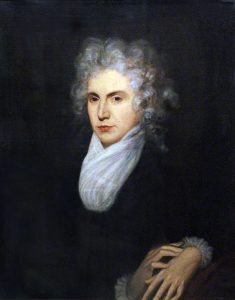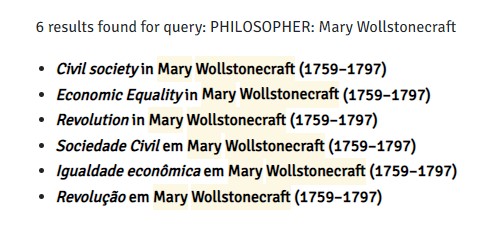 Mary Wollstonecraft believed that, given that nature made men unequal, the purpose of government ought to be the elimination of this inequality. But governments had done the very opposite, in her view. While she did not argue for the elimination of difference, she thought all citizens should be given the opportunity to flourish and excel. Some of her propositions in this regard included land redistribition, the abolishment of primogeniture and the right to the fruit of one’s labour. This made her views compatible with Physiocrats, such as François Quesnay (1694–1774) and Anne Robert Jacques Turgot (1787–81). She became a strong critic of the intensification of the division of labour, the luxury economy, commerce, if only for its psychological effects on those engaged in it, and was a passionate opponent of the slave trade. She argued for the education of women and their right to acquire a profession, such that they could maintain themselves independently and never be forced into marriage, especially not for financial reasons.
Mary Wollstonecraft believed that, given that nature made men unequal, the purpose of government ought to be the elimination of this inequality. But governments had done the very opposite, in her view. While she did not argue for the elimination of difference, she thought all citizens should be given the opportunity to flourish and excel. Some of her propositions in this regard included land redistribition, the abolishment of primogeniture and the right to the fruit of one’s labour. This made her views compatible with Physiocrats, such as François Quesnay (1694–1774) and Anne Robert Jacques Turgot (1787–81). She became a strong critic of the intensification of the division of labour, the luxury economy, commerce, if only for its psychological effects on those engaged in it, and was a passionate opponent of the slave trade. She argued for the education of women and their right to acquire a profession, such that they could maintain themselves independently and never be forced into marriage, especially not for financial reasons.
“I lament that women are systematically degraded by receiving the trivial attentions, which men think it manly to pay to the sex, when, in fact, they are insultingly supporting their own superiority. It is not condescension to bow to an inferior. So ludicrous, in fact, do these ceremonies appear to me, that I scarcely am able to govern my muscles, when I see a man start with eager, and serious solicitude, to lift a handkerchief, or shut a door, when the lady could have done it herself, had she only moved a pace or two.” (Wollstonecraft 1993, 126)
We have six ECC articles on Wollstonecraft’s ideas:
If you are interested in Wollstonecraft research, find Scholars from our New Voices network.
You may also visit the entry of Mary Wollstonecraft in our Directory of Women Philosophers.
References
Wollstonecraft, Mary (1993), A Vindication of the Rights of Men. A Vindication of the Rights of Woman. An Historical and Moral View of the French Revolution, Oxford: Oxford University Press.
You cannot copy content of this page









